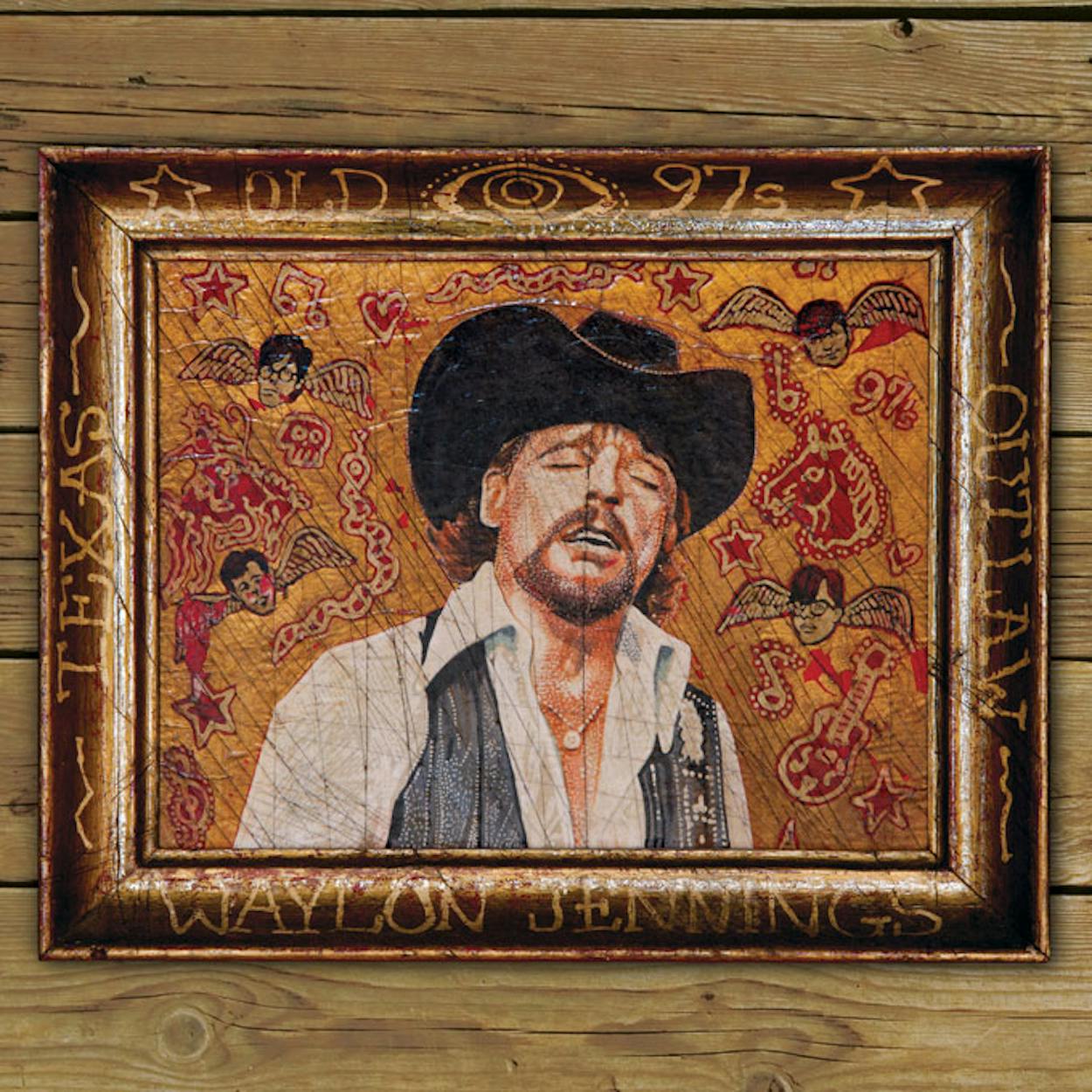In 1996, five Texans met in Nashville to record two songs together. At the time, the four members of the Dallas band Old 97’s were awaiting the release of their major-label debut for Elektra Records, Too Far To Care. But already they were considered too loud for country, too country for rock. It was a struggle that the fifth Texan in the room, Waylon Jennings, knew all too well.
Jennings, who had gotten his start playing with the Lubbock native Buddy Holly and was a father of the Outlaw Country movement, was one of the band’s musical heroes, and they jumped at the chance to work with him. Yet for seventeen years the songs—frontman Rhett Miller’s “The Other Shoe” and bassist Murry Hammond’s “The Iron Road”—sat on the shelves, largely unheard. What Miller calls the band’s “holy grail” finally saw light as a limited edition vinyl single in April, and promptly sold out.
On October 1, Omnivore Recordings, a Los Angeles label dedicated to reissues and “lost” recordings, will, for the first time, release both songs on CD and online, along with four Old 97’s demos, as Old 97’s and Waylon Jennings. To mark the occasion, Miller, Hammond, and bandmates Ken Bethea and Philip Peeples recounted the time they spent with Jennings, whose health began to seriously decline soon after the sessions. He died in 2002.
RHETT MILLER: In 1996, we were playing a radio convention in Atlanta, and Waylon was in the front row, making me super nervous. He was pretty much the coolest guy and best singer in the world, maybe in a tie with Willie Nelson. That he was there and seemed into us was totally mind-blowing.
MURRY HAMMOND: Our song “Big Brown Eyes” includes the line, “It takes a worried man to sing a worried song,” a nod to the Carter Family’s take on “Worried Man Blues.” When Rhett sang that line, Waylon kind of sat up in his chair a little and started clapping. That relaxed me. He’s a Carter Family fan. And we are. It was a little shared moment.
KEN BETHEA: Not long after the radio convention, we heard Waylon raved about us to the Austin Chronicle. What’s more amazing than to be young guys finding your way, sleeping on floors, and have Waylon Jennings talk you up to the press?
MILLER: Our representative at Elektra thought we should write him a letter. I sat down and wrote five or six drafts. I tried not to sound too pandering or too cool. I thanked him for the kind things he said and if he ever wanted to work together we’d go anywhere and do anything he asked. He replied that he’d like to cut a couple of tracks in Nashville. I think we were auditioning to do a full Waylon album where we’d be his band.
BETHEA: We heard Waylon wanted to load into the studio at 8:30 a.m. We were young and didn’t get up that early. We compromised for a 10 a.m. start, and when we showed up, he’d already been there fifteen minutes, waiting on us. He was ready to work.
HAMMOND: I wrote “The Iron Road,” this tragic number about a wanderer who was going to kill himself, specifically with Waylon’s voice in my head. And then there he was, actually singing it.
PHILIP PEEPLES: In the downtime, he was so easygoing, so gracious, like an uncle at a family reunion. And we were all Texans. There was that bond. And we had this Buddy Holly-looking frontman.
MILLER: Yeah, I was a Buddy Holly cookie-cutter clone. Guilty. But I think he saw how much I idolized his old best friend. And then at lunch, he told the Buddy Holly story. That story he must have told a million times about his last words to Buddy—“I hope your ol’ plane crashes”—still choked him up.
HAMMOND: It was so obvious he still felt guilty about it. It was so sad. It’s easy to forget there are real people behind those legendary stories.
MILLER: After lunch, he cut the vocals for “The Other Shoe.” He got to the second verse, where the cuckolded husband is under the bed and imagining the murders he’s about to commit. There’s a line, “You’ll try to find a doctor that will prescribe an elixir that’ll make everything better.” He kept saying “excelsior.” It got tense in the control room because he’d keep getting through the whole song and mess up that word. Eventually, I had an idea. I told him to just use the phrase “Annie licks her.” He started laughing. “I like you, you’re sick,” he told me. And he nailed it on the next take.
HAMMOND: Afterwards, we heard he loved the mixes, and got a nice note from him. But it was kind of perfect that we never saw him again. It’s neat that it’s just two songs. An album gets judged differently than a 45. I’m a record collector, so I love unique 45s and EPs that happened and never happen again. It was that.
MILLER: For me, the buzz of hearing him sing our songs will never go away. That thrill—that my hero thought enough of them to sing them—will never get old.
Andy Langer is the music columnist for Esquire and the midday D.J. on KGSR in Austin.
- More About:
- Music
- Waylon Jennings






